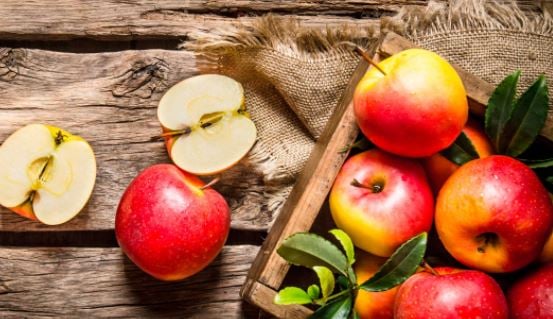Your medical practitioner was not lying when (s)he said that, “An apple a day keeps the doctor away”. Apples are perhaps one of the fruits packed with loads of nutrients. Tagged ‘miracle fruits’, apples are rich in antioxidants and phytonutrients.
As a component of rich and healthy food, it is important to include apples in your daily diet. Interestingly, apples are great additions to breakfast, lunch, and dinner.
Some of the health importance of apples are:
Reducing the risk of breast cancer
A series of research carried out by Rui Hai Liu presents proof that daily intake of apples might play an active role in preventing breast cancer.
According to Hai Lui, by religiously consuming apples, women could prepare their bodies to being immune as apples contain Phonetics.
Try including apples to be part of your daily diet.
Reducing the risk of obesity
Ever wondered why apples always make up weight-loss diets? This is because the apple fruit contains properties encouraging weight loss.
Some research has tried to prove that every species of apple contain bioactive compounds which affects the good gut bacteria in mammals.
To achieve your weight-loss goals, get creative with your apple intake by including them in your smoothie as well as food.
Reducing the risk of diabetes
Studies have discovered that consuming apples (three servings weekly), contribute more than 5 percent chance of lowering diabetes (type 2).
An easy way to get used to including apples in your diet as a preventive against diabetes, is to replace artificial sugars with apples and other fruits. For instance, substituting apples for sugar in your cereal.
Improving neurological health
Quercetin is a predominant antioxidant found in apples and an important compound which helps to reduce cellular death. These deaths are caused by oxidation of neurons.
A recent study suggests that apples have the potential of increasing the production of the neurotransmitter acetylcholine in the brain.
Copyright 2024 TheCable. All rights reserved. This material, and other digital content on this website, may not be reproduced, published, broadcast, rewritten or redistributed in whole or in part without prior express written permission from TheCable.
Follow us on twitter @Thecablestyle

